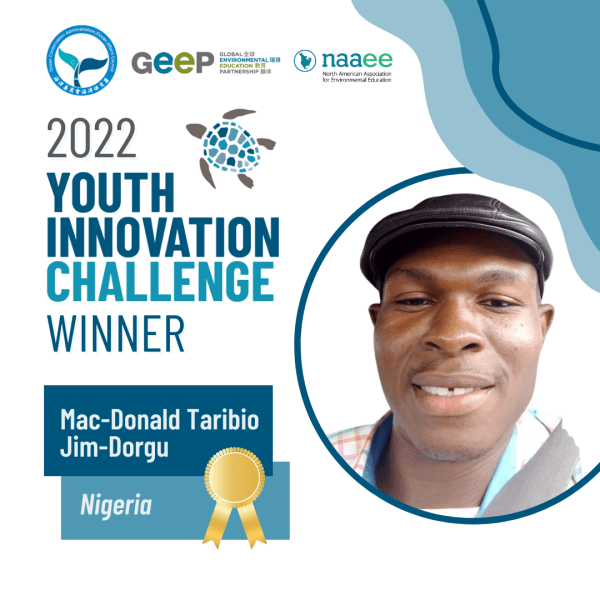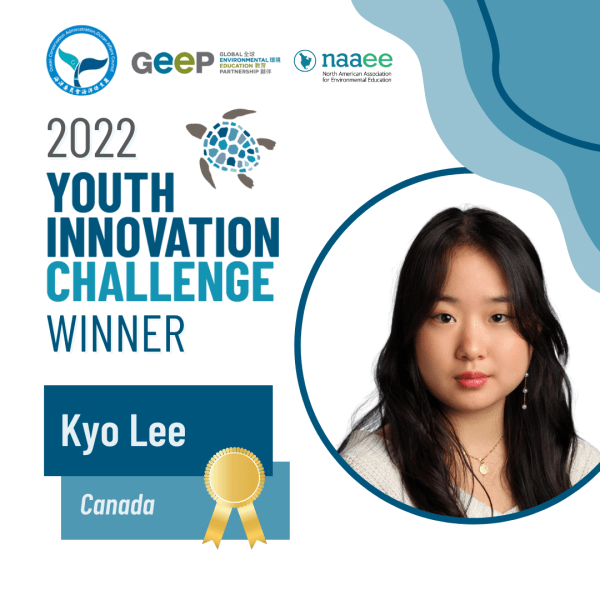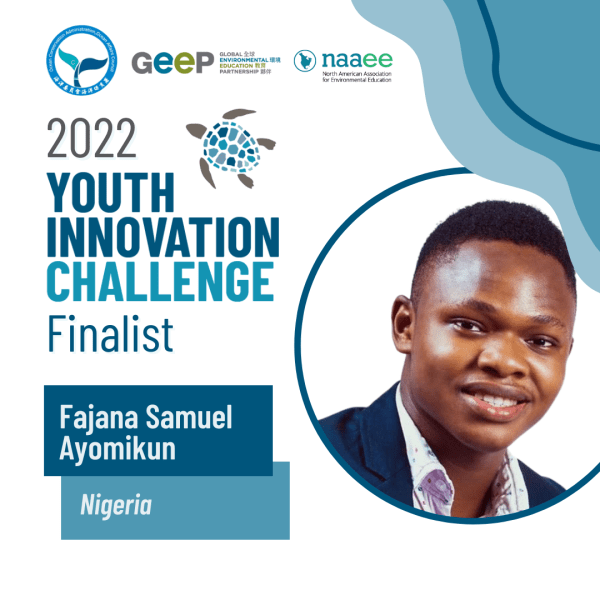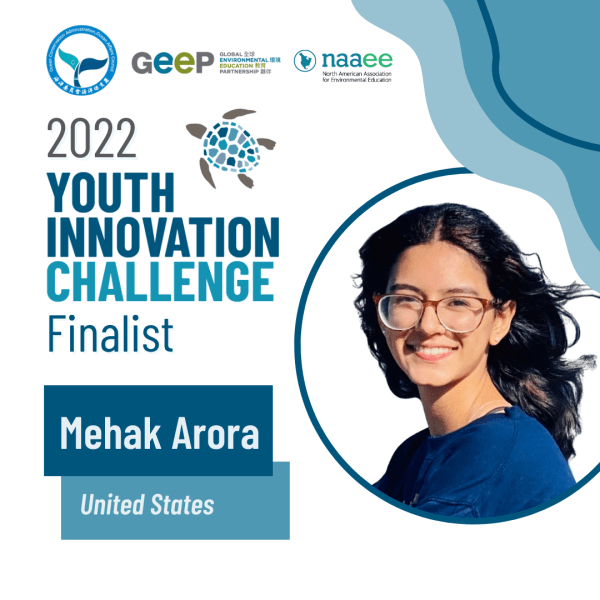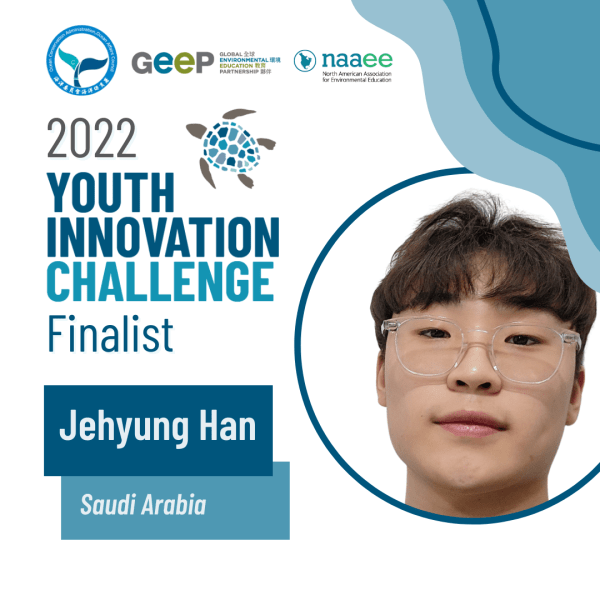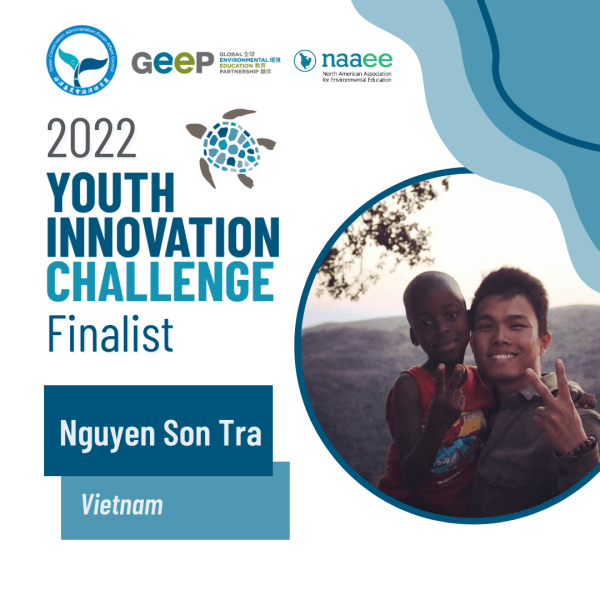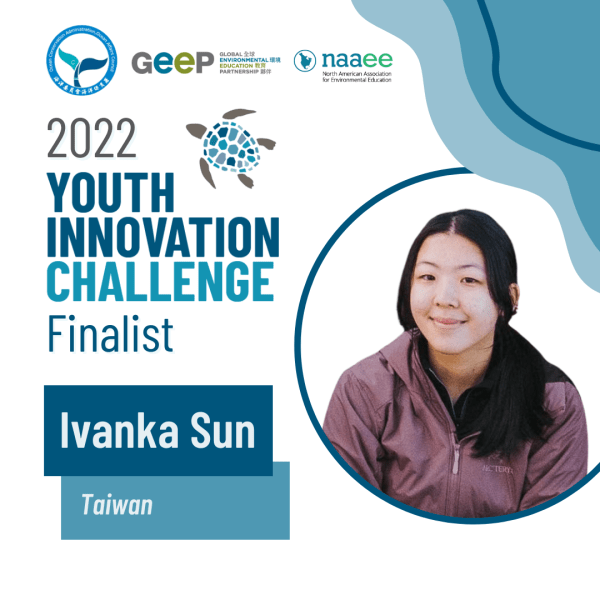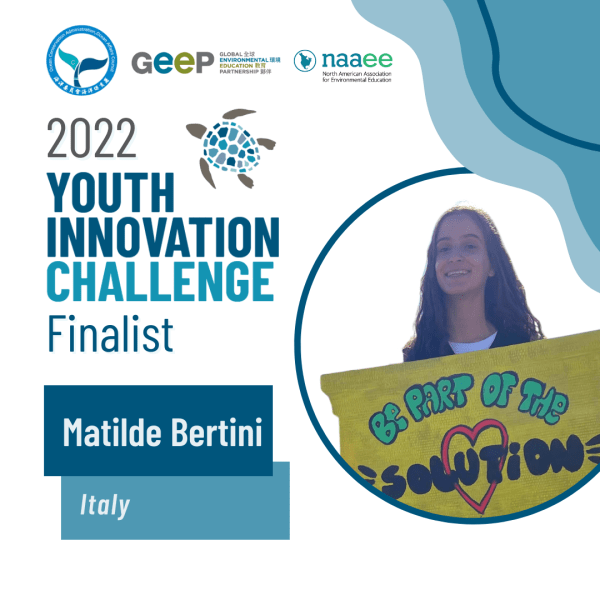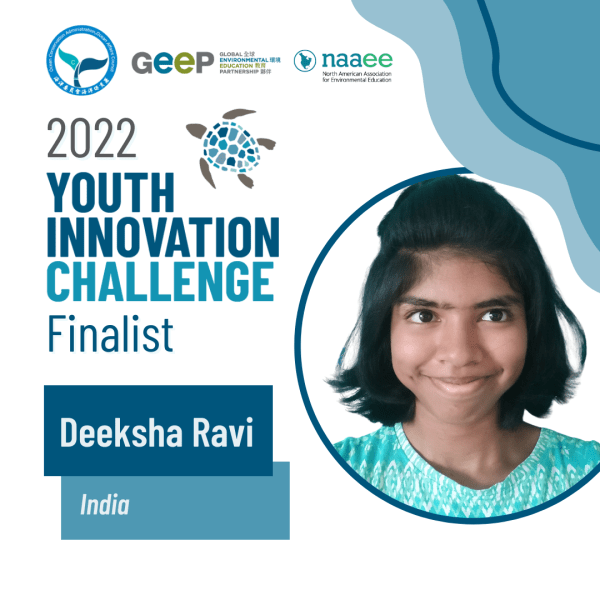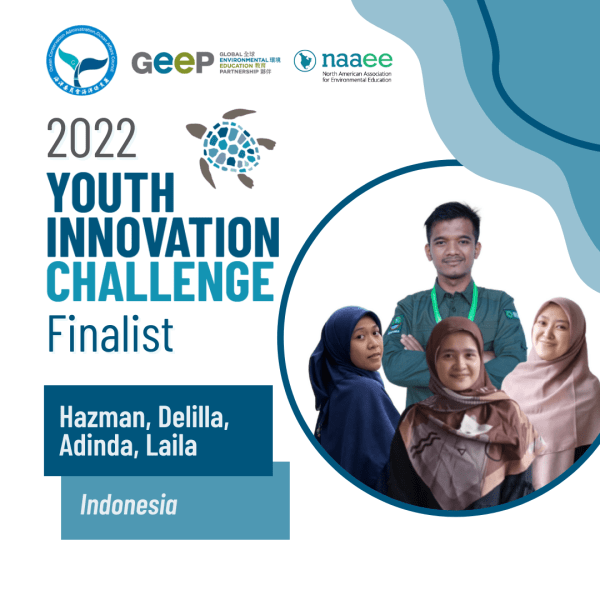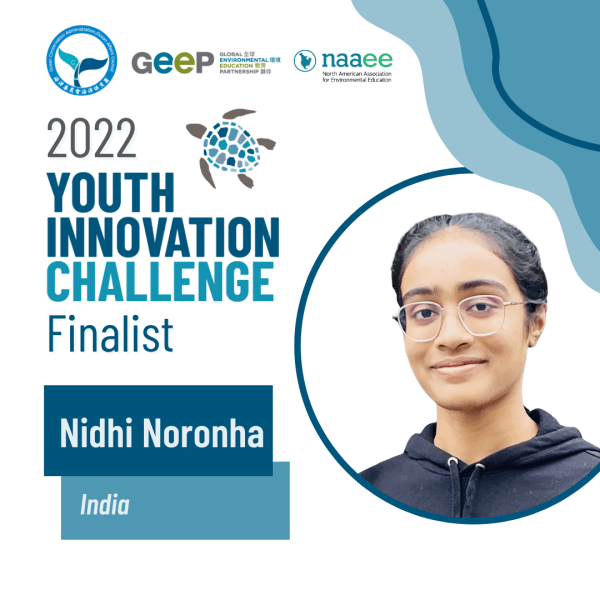Image

The 2022 GEEP Youth Innovation Challenge (YIC) gave young people (ages 15–30) around the world a chance to come up with innovative solutions to a pressing environmental issue affecting our marine ecosystems, using environmental education as a key strategy. From our amazing finalists, three winners were chosen to receive a $1000 USD prize!
Check out our 2022 Youth Innovation Challenge Winners and Finalists below!
Click here to read the full press release.
